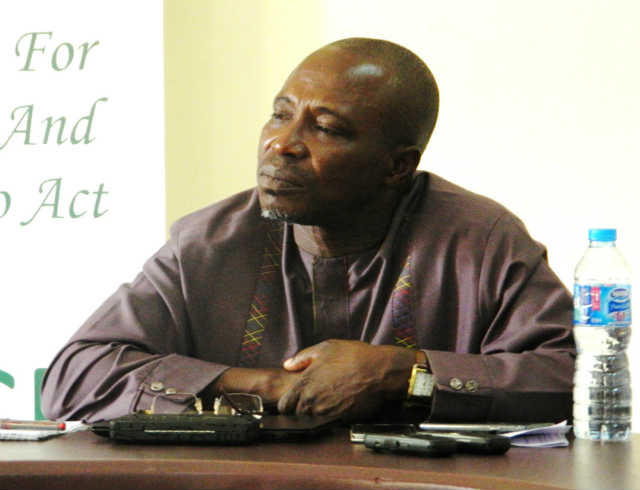
Peace and Security Forum (PSF) urged Nigerians to be willing and open to offer vital information for use which will strengthen the institutions and operations in a manner and way to boost peace and security in the country.
The Director-General of the Institute for Peace and Conflict Resolution (IPCR), Prof. Oshita O. Oshita, gave the charge when he declared open the bi-monthly meeting of the PSF facilitated by the IPCR in collaboration with the Civil Society Legislative Advocacy Centre (CISLAC) at the IPCR Complex, Abuja lately. He also revealed that the Peace and Security Forum is supported by the Nigeria Stability and Reconciliation Programme.
Oshita Oshita further said that the meeting was strategic as it helped to analyse issues as well as conveyed decisions to various authorities through advocacy, adding that it has been yielding positive results in peace and security governance in the country.
“Through PSF, the PCR which is the Chief Advisor on National Peace and Conflict Issues as well as stakeholders were well engaged at the Kogi and Bayelsa elections in which vital information were shared with INEC and the security operatives to have successful elections and also manage potential crises from degenerating,” he said.
The Director – General inferred that the activities of the PSF have impacted so much on organizations such as the Offices of the National Identification Management (NIM), National Communication Commission (NCC) and the National Press Council (NPC) where unhealthy operations with dangerous undercurrents have been successfully dealt with proactively.
He observed that the PSF provided the information that spurred the federal government to begin the synchronization of the identity management platforms which will at the long run enhance the country’s security system. He added that the forum is at present engaging the Federal Ministry of Information to reassess the kind of communication backbone which is being used for Radio Nigeria broadcast signals in the North – Eastern part of the country where communication seems difficult. He intensified that a situation where Nigerian citizens only access radio signals from neighbouring countries is against the national security interest of the country.
The DG of IPCR noted that places with serious security challenges require strong and reliable communication networks for government to easily mobilize the people and maintain regular touch. He cited the ugly situation where people in far North-Eastern part of the country receive communication signals more from neighbouring countries of Niger and Chad than from Nigeria. He thanked the representatives of the Armed Forces, the Police and other paramilitary agencies among others, who have been regular at the bi-monthly meeting of the PSF.
Matters on the agenda of the meeting included among others the issue of coordination between the police and the military in effectively securing gained territories; progress reports on the gains in the northeast – thumps up to the Armed Forces; reports on the Kogi and Bayelsa elections with highlights on multi-stakeholder engagements, reports of the engagement on emerging threats in Abuja and the country at large, post -amnesty matters arising; the Zaria incidence harvesting stakeholders’ opinions and call for calm and updates on the advocacy visits to the agencies of government.
The meeting featured the presentation of a paper titled: “Democracy in Nigeria and Emerging Security Threats: Issues and Challenges.” [PSF/IPCR]
Support InfoStride News' Credible Journalism: Only credible journalism can guarantee a fair, accountable and transparent society, including democracy and government. It involves a lot of efforts and money. We need your support. Click here to Donate
